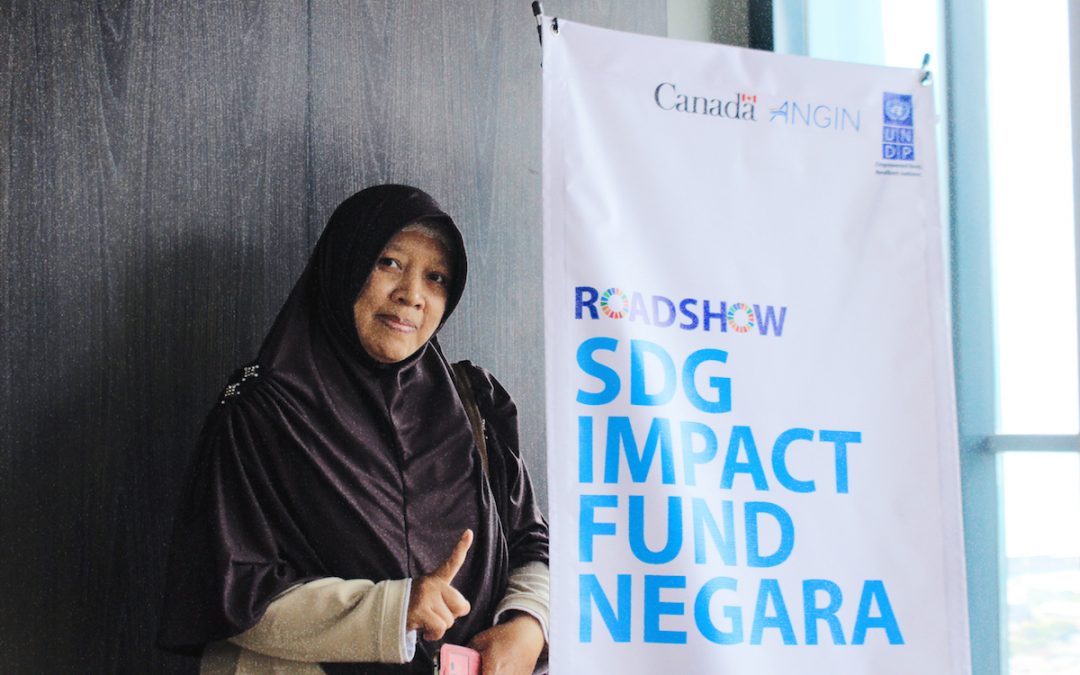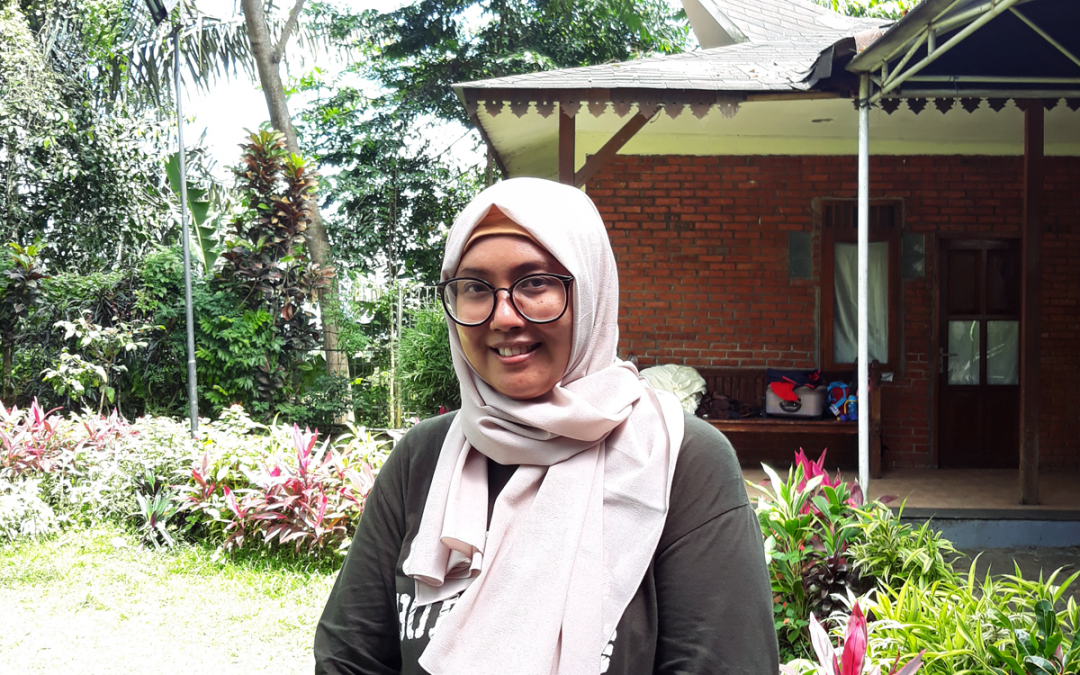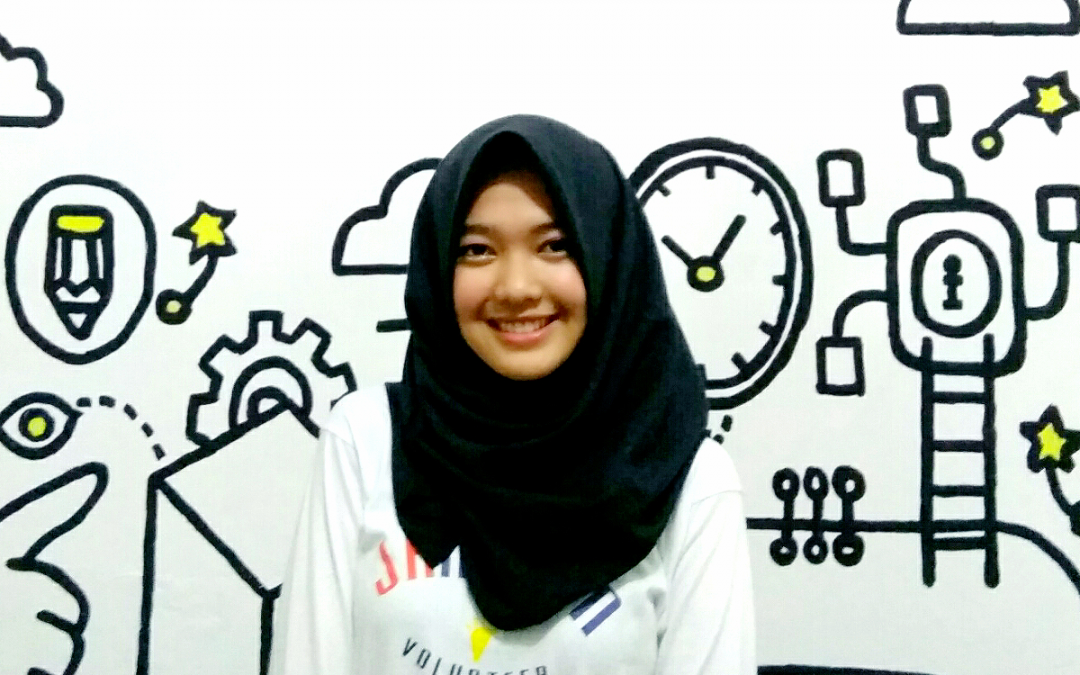Tell us a bit about yourself.
My name is Sunarni Widyastuti. I am from Repong Indonesia, a social enterprise that provides environmental services for tourism within the state forest area in Lampung, as well as agro-tourism outside of the forest area. Our aim is to assist the forest farmers in the area, to be less dependent on forest resources, and thus to prevent further destruction to the forestlands. By finding alternative sources of income for local people and their economy, we are able to maintain the sustainability of the forest, protect its biodiversity, and increase the animal population. For example, we help locals manufacture products made from non-wood materials such as honey, handicrafts from bamboo, etc.
We want to enhance environmental awareness as well as nurture the ecosystem balance and sustainability of the lives of the people surrounding the region through business. Business is one of the keys to ensuring environmental preservation – that the environment is continually maintained. We hope to increase the population of wild animals and maintain harmony within the community. That is our hope.
What motivated you to work for this enterprise?
First, because we have a vision to maintain the balance of the forest ecosystem and prevent it from being exploited. Secondly, in doing so, the local community needs to find new ways of earning a living. Thus by using a tour permit, people are able to sell forest resources legally while contributing to the local economy. Previously, much of the forest area was deemed illegal for extracting resources whereas now farmers can benefit from the forests and maintain a livelihood. Our priority is within the state forest region as well as outside this area.
We also strive to protect the animal population. At the moment, we have a conservation program for animals prone to extinction such as the rhinoceros as well as a variety of bird species. Visitors are also invited to plant trees together to promote forest regrowth from forest fires. We are also experiencing human conflicts with elephants within the forest. In order to be a sustainable business, we have to make sure that people are not dependent on the forest, and that the animals are also not disturbed.
What particular challenges have you faced thus far?
At the moment, we are having difficulties with sustaining our projects financially over a longer period of time. We try to fundraise, however, and have received a considerable amount of local government grants and village funds. However this is still not yet optimal, so the role of our NGO is to provide intensive assistance to the local community in the case that the government has not been able to meet our financial demands.
How do you go about overcoming these obstacles?
Generally, we rely on the sharing of community resources and mutual cooperation. For example, we reach out to local governments and districts when we are urgently short on funding. After that, we look to NGOs such as WWF and WCS. And if there are still shortcomings, we look for more donors until we fulfil our needs. Indeed, it is not sustainable, so it is our role as an NGO to network and attend forums on entrepreneurship for example, to improve our business. Either way it is not easy, but urgent matters can always be overcome. We have had 20 years of experience in this field, and the community has been able to handle business independently.
What can we do to help this cause?
The development of our enterprise is something we need to prioritize at the moment. Particularly in terms of the sustainability and scalability of it. Both of these aspects are important as our business does in fact need diversification so that it can become attractive to buyers and investors. Because of the nature of services, there needs to be some sort of business diversification which is why we offer some tour packages. So the packages may have things to diversify. Secondly, sustainable practices needs to be implemented to ensure our the preservation of the forest and our future.









